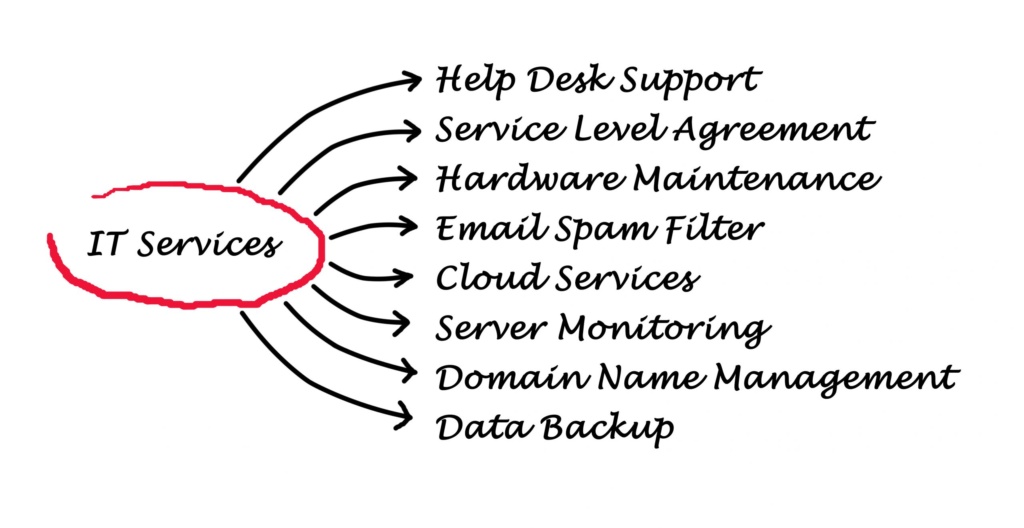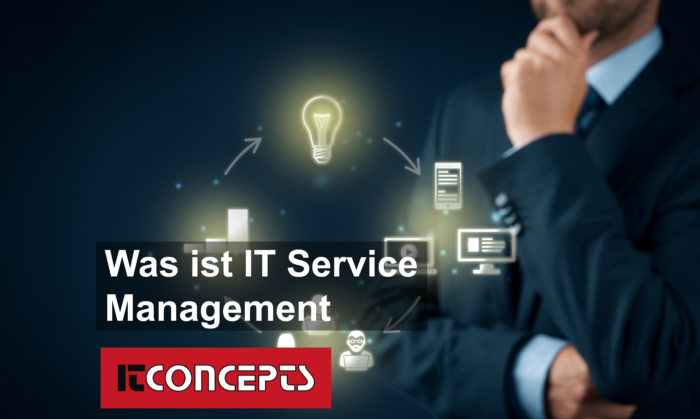Business processes (Business Services)
The added value of any company can be divided into so-called business processes. Business processes are defined by the generation of a (tangible or intangible) value and have a start as well as a declared goal.
Please note: value creation often takes place across several departments or even several companies. Accordingly, business processes can also function beyond the boundaries of departments or companies.
IT-Services
In many industries and therefore many companies (and their business processes), digitisation leads to an increase in efficiency by supporting or switching to “digital means”. In the IT world, these digital means are referred to as IT services. In practice, an IT service can look very different.
Concrete examples:
- Provision of mobile telephony
- Hosting of databases
- Consulting services in IT matters

IT Service Management (ITSM)
This is how the relevant terms can be redefined. But what is IT Service Management all about?
You might think that this is now obvious, after a description of IT services. However, the term ITSM is actually somewhat broader than “just” the management and definition of IT services.
The term ITSM primarily describes the support of business processes through IT services. Through ITSM, efficiency, quality and profitability can be optimised continuously.
The term also stands for the change from information technology to service and customer orientation. The boundaries between information technology and business processes should be removed as far as possible.
ISO/IEC 20000
The popularity of ITSM and many different approaches have led to the international standard ISO/IEC 20000 of the International Organization for Standardization (ISO). Companies can have their compliance with the standard certified by various institutes.
ISO/IEC 20000 specifies the minimum process requirements that a company must attain in order to provide and manage IT services in a defined quality. The first part of the standard contains the formal specification of the standard and the second part offers a collection of best practices. Both technically and linguistically, ISO/IEC 20000 is strongly based on the ITIL framework.










